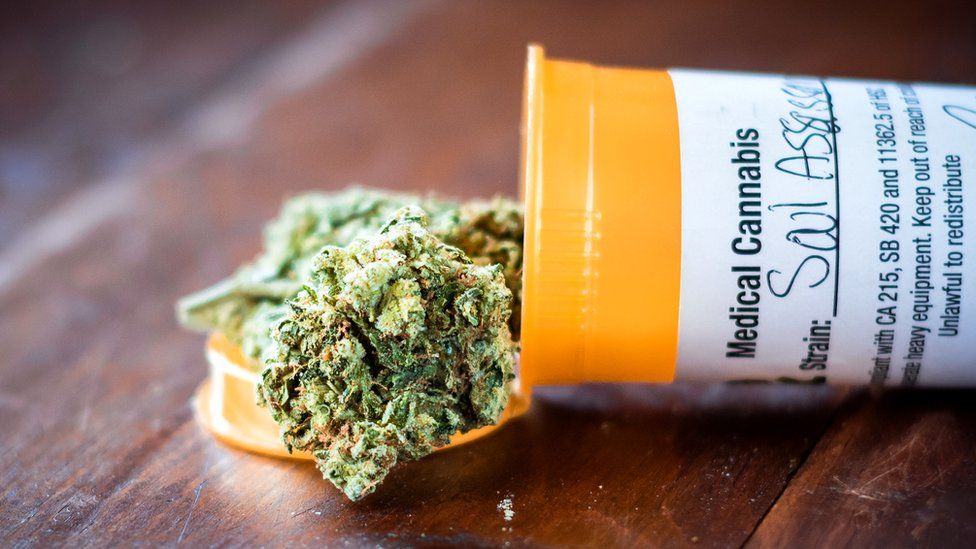Shedding Light on What Medical Cannabis Can Heal: a Comprehensive Analysis of Its Therapeutic Features
In current years, there has been a growing rate of interest in the therapeutic possibility of medical cannabis. While unscientific evidence is plentiful, an extensive assessment of the scientific information pertaining to the efficiency of clinical cannabis in dealing with these conditions is necessitated.
Persistent Pain Monitoring
Chronic discomfort administration continues to be an essential element of healthcare, necessitating a thorough method for reliable therapy. Recently, medical marijuana has become a prospective healing alternative for individuals dealing with chronic discomfort conditions. The endocannabinoid system, which plays a vital role hurting modulation, has been targeted by cannabis-based treatments to ease signs and symptoms and improve lifestyle for individuals.

In addition, medical marijuana offers an encouraging option for individuals who experience intolerable negative effects from conventional pain drugs. Its capacity to deal with pain via a different mechanism makes it an important addition to the arsenal of therapies offered for chronic discomfort management.
Epilepsy Therapy Prospective
Medical cannabis has revealed promising capacity in the therapy of epilepsy, providing an unique restorative method for taking care of seizures in individuals. Epilepsy is a neurological condition identified by persistent seizures, impacting individuals of all ages. Conventional therapies for epilepsy consist of antiepileptic drugs, yet these medicines might not work for all people and can have significant adverse effects.
Research study on using medical cannabis for epilepsy has actually revealed encouraging outcomes. Cannabidiol (CBD), a non-psychoactive compound discovered in cannabis, has actually been specifically highlighted for its anticonvulsant properties. Researches have actually revealed that CBD can decrease the regularity and seriousness of seizures in individuals with treatment-resistant types of epilepsy, such as Dravet disorder and Lennox-Gastaut disorder.
Additionally, the FDA has actually approved a CBD-based drug, Epidiolex, for the treatment of seizures linked with these severe types of epilepsy. This landmark highlights the growing recognition of clinical marijuana as an important healing option for handling epilepsy and gives hope for patients that have actually not reacted well to standard therapies.
Nausea Relief Conveniences
The alleviation of queasiness with the usage of cannabis has been significantly acknowledged for its healing advantages in numerous clinical problems. Nausea and vomiting prevail signs experienced by patients undertaking radiation treatment, those with food poisonings, and individuals with persistent pain conditions. Medical cannabis, with its active compounds such as THC and CBD, has shown promise in giving remedy for queasiness.

Furthermore, medical cannabis offers a natural option for people who do not respond well to standard anti-nausea drugs or who experience severe adverse effects from these medications. Clients undergoing radiation treatment, particularly, have actually reported substantial renovations in their top quality of life when using marijuana to take care of nausea. As research around proceeds to grow, clinical marijuana is increasingly being taken into consideration as an important option for queasiness relief in various clinical setups.
Anxiousness Decrease Impacts
Studies have actually shown the anonymous possibility of marijuana in minimizing anxiety signs and symptoms via its communication with the endocannabinoid system. The endocannabinoid system plays an essential duty in controling emotions, consisting of anxiousness, by keeping homeostasis in the body. Cannabinoids in cannabis, such as THC and CBD, interact with the endocannabinoid receptors in the mind, specifically the CB1 and CB2 receptors, to modulate anxiety-related responses.

Clients with problems like generalized anxiety problem (GAD), social anxiousness condition, and trauma (PTSD) may gain from the anxiolytic buildings of cannabis (Medical Marijuana near me). Additional research study is needed to establish optimal dosages, shipment approaches, and lasting impacts on anxiousness management.
Prospective for Inflammation Control
With its recognized anti-inflammatory homes, marijuana has actually shown promise in potentially regulating inflammation within the body. Inflammation is the body's natural action to injury or infection, however when it comes to be chronic, it can add to various conditions such as arthritis, inflammatory digestive tract disease, and also cardiovascular disease. Study recommends that the cannabinoids found in cannabis, find more information such as THC and CBD, can help regulate the immune reaction and minimize swelling.
Researches have revealed that cannabis can communicate with the endocannabinoid system, which plays an essential role in regulating inflammation. By targeting the cannabinoid receptors, cannabis compounds can regulate the immune action, bring about a decrease in inflammation degrees. This makes marijuana a possible candidate for taking care of inflammatory problems where traditional therapies have actually failed.
Additionally, cannabis-derived products like CBD oil have actually obtained popularity for their anti-inflammatory buildings, with many individuals utilizing them as a natural remedy for problems connected with swelling. While more research is required to completely understand the mechanisms behind marijuana's anti-inflammatory impacts, current searchings for show appealing results for the potential use medical marijuana in managing inflammation.
Verdict
To conclude, clinical marijuana has revealed promising therapeutic buildings in handling chronic discomfort, treating epilepsy, alleviating queasiness, minimizing anxiety, and managing inflammation. Its possible advantages in different medical conditions highlight the relevance of additional study and expedition right click over here into its medical use. The proof suggests that medical cannabis can be a beneficial alternative therapy alternative for people looking for remedy for a series of symptoms and conditions.
In recent years, medical cannabis has actually emerged as a possible restorative option for people suffering from persistent discomfort problems.Medical cannabis has shown encouraging possibility in the therapy of epilepsy, providing a novel restorative strategy for taking care of seizures in individuals. As research in this area proceeds to expand, medical marijuana is increasingly being thought about as an important choice for nausea alleviation in various clinical settings.
In conclusion, medical cannabis has revealed promising restorative residential or commercial properties in handling chronic pain, treating epilepsy, eliminating nausea or vomiting, reducing anxiety, and controlling swelling. The proof recommends that clinical cannabis might be an important alternative therapy option for patients seeking alleviation from a variety of conditions and symptoms.